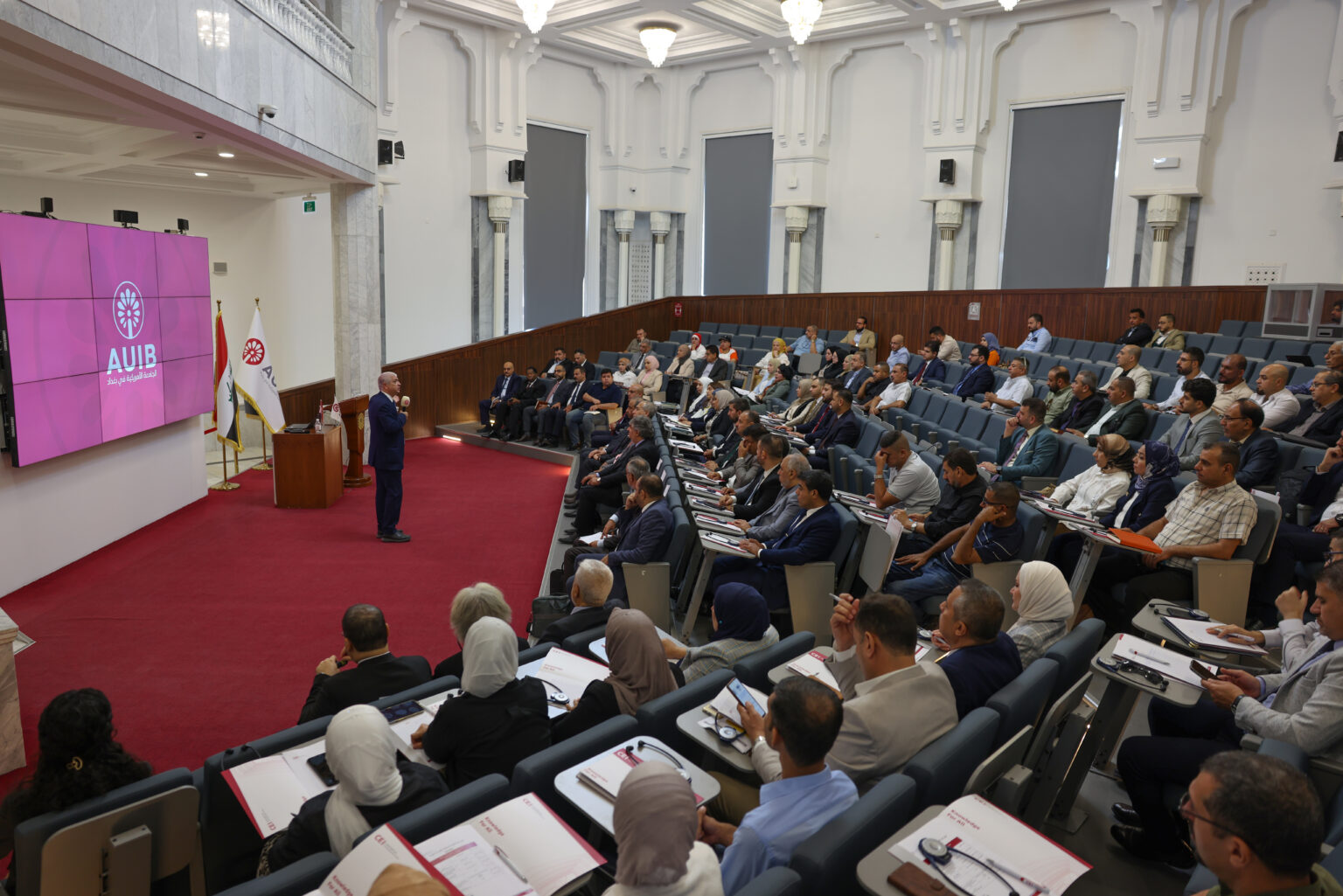The Continuing Education Institute (CEI) and the Centre for Climate Change, Water Security, and Environmental Sustainability at the American University of Iraq-Baghdad (AUIB) organized a seminar on international quality standards and the challenges posed by climate change to Iraq, addressing the issue from broader regional and global perspectives. Government officials and a host of academics and interested parties from various sectors attended the seminar and followed presentations on environmental standards that the International Organization for Standardization (ISO) now incorporates into all quality systems, and on the causes of climate change, globally, and its impact on the Middle East and North Africa region.
“We seek solutions to the problems that Iraq faces,” and of the most prominent of these is climate change, said the CEO of AUIB’s CEI, Mr. Ziad Chaaban, pointing out that the solutions sought depend upon various sectors, policy-mixes, and even governments. All segments of society have roles to play in the collective effort to meet the challenges of climate change, he said, affirming that “it is not true that we are helpless” in this regard, pointing out that environmental sustainability standards have become an integral part of the criteria according to which all institutions are ranked. Mr. Chaaban explained that CEI is keen to fulfill its part in spreading awareness amongst students and educators alike on the importance of recycling wastes, expanding the utilization of renewable energy sources, and making the concept of environmental sustainability fundamental to the design of buildings and machinery, to mention but a few of the approaches that would serve to create a better environment for us all and for future generations.
Director of the Centre for Climate Change, Dr. David Kargbo, gave a presentation on the causes of climate change and its impact on the MENA region, highlighting the fact that the “causes and effects (of this phenomenon) transcend national boundaries, affecting all regions of the planet in varying degrees,” hence the need for “global solutions.” Dr. Kargbo maintained that human activity is “the number one reason” for climate change, and that “we as mankind are capable of addressing” this challenge. The study of this phenomenon and the crafting of relevant solutions necessarily involve all academic disciplines, remarked Dr. Kargbo, thus accentuating the pivotal role the Centre is expected to play in this regard at AUIB and the within the broader community.
